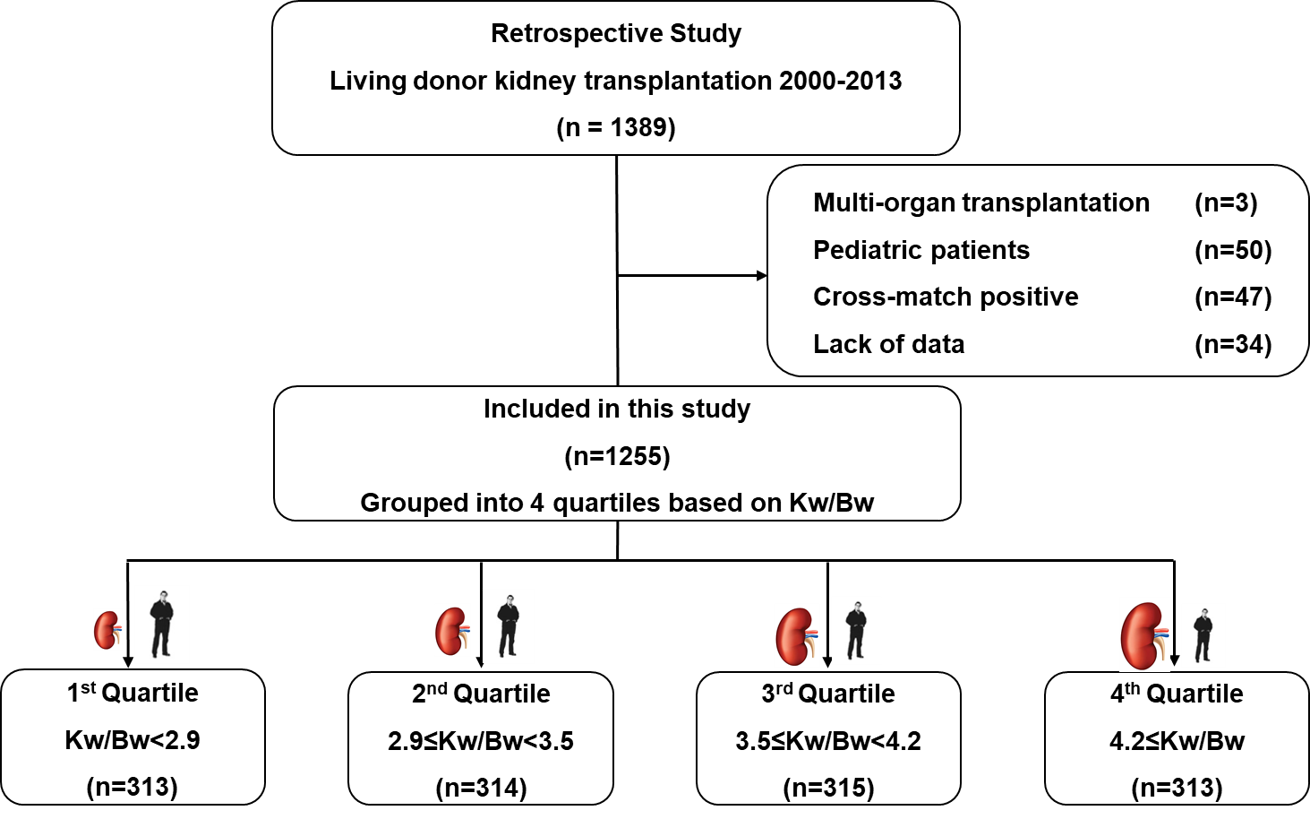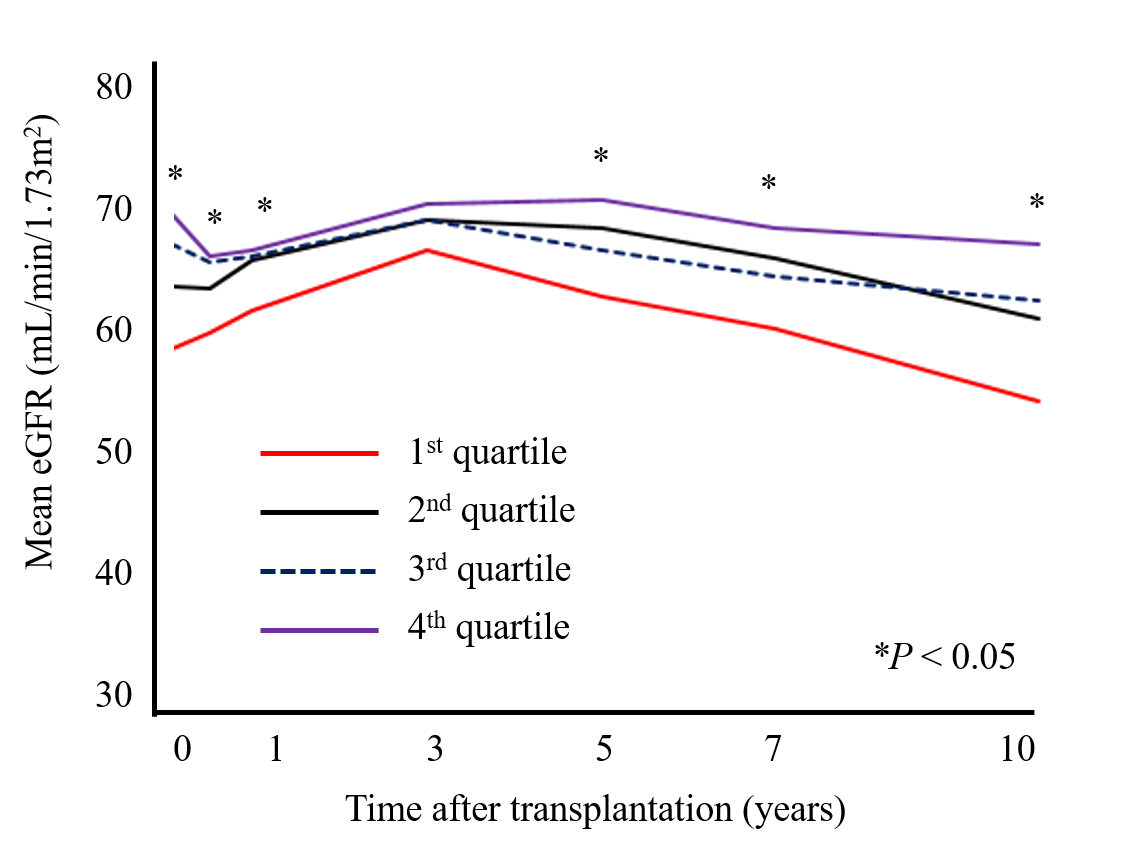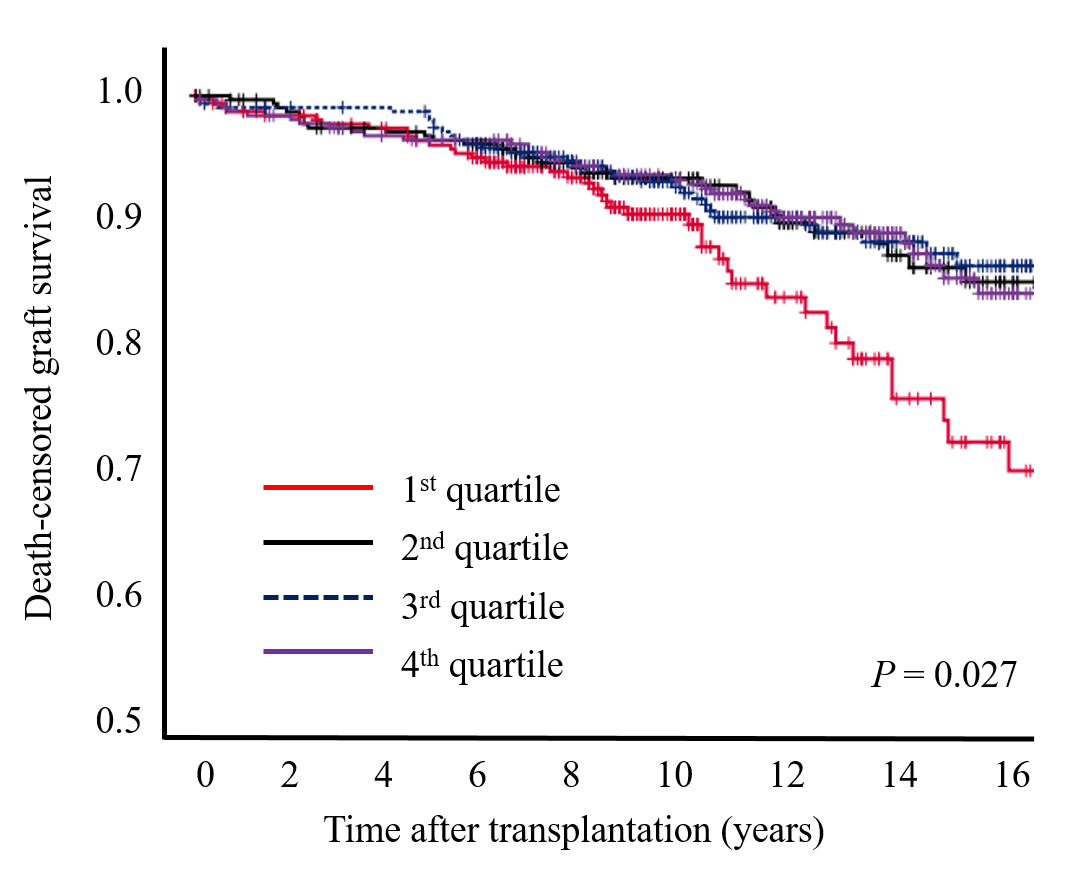The influence of the donor kidney weight to recipient body weight on long-term renal graft outcomes
Seok Jeong Yang1, Eun Jin Kim2, Juhan Lee2, Beom Seok Kim3, Myoung Soo Kim2, Soon Il Kim2, Yu Seun Kim2, Kyu Ha Huh2.
1Department of Surgery, Yongin Severance Hospital, Gyeonggi, Korea; 2Department of Transplantation Surgery, Severance Hospital, Yonsei Medical College, Seoul, Korea; 3Department of Nephrology, Severance Hospital, Yonsei Medical College, Seoul, Korea
Introduction: The relative donor kidney size is well-known factor to graft renal function, but there are still controversies about its effect on long-term graft survival. This study is aimed to evaluate the impact of the mismatch between donor kidney weight to recipient body weight(KW/BW) on long-term graft survival.
Materials and Methods: We retrospectively investigated 1255 consecutive adult living donor kidney transplantation cases from January 2000 to December 2013 in Severance hospital. According to KWBW quartile, the enrolled patients were divided into 4 groups, 1st quartile (KW/BW < 2.9; n=313), 2nd quartile (2.9≤KW/BW<3.5; n=314), 3rd quartile (3.5≤KW/BW<4.2; n=315), 4th quartile (4.2≤KWBW; n=313).

Results: In multivariate analysis, recipient age (p=0.017), donor age (p<0.001), HLA mismatch (p=0.039), KW/BW (p=0.020) were independent factors that affect the death-censored graft loss. The 1st quartile group showed lowest eGFR at postoperative 1, 6 months (p=0.005) but the renal function of this group improved steadily, the statistical difference was diminished compared to other groups after a year from surgery (p=0.163). From 5 years after transplantation, the eGFR of 1st quartile group declined significantly lower than other groups (p=0.000) and this phenomenon sustained up to 10 years after operation.

The KW/BW also effects on the death-censored graft survival at 10 years after operation (p=0.04).

Conclusions: The KW/BW ratio is the independent determinant for long-term renal graft function and graft survival.
[1] Goldberg RJ, Smits G,Wiseman AC. Long-termimpact of donor-recipient size mismatching in deceased donor kidney transplantation and in expanded criteria donor recipients. Transplantation. 2010;90:867–874.
[2] Kim YS, Moon JI, Kim DK, Kim SI, Park K: Ratio of donor kidney weight to recipient bodyweight as an index of graft function. Lancet 357: 1180–1181, 2001
There are no comments yet...